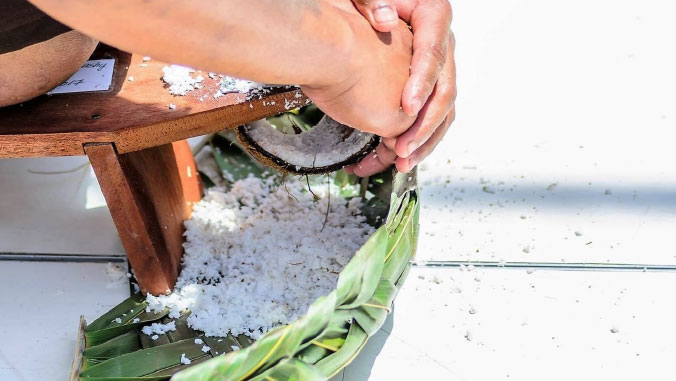
Micronesian people in Hawaiʻi frequently face bias and discrimination in the workplace, according to the results of a new study by researchers at the Myron B. Thompson School of Social Work at the University of Hawaiʻi at Mānoa.
In the study of more than 500 people from the Micronesian region currently living in Hawaiʻi, 24 percent reported that a co-worker or boss had gossiped about them or made fun them because of their ethnicity. In addition, 9 percent had been mistreated, such as by being denied a promotion, and 9 percent said they had been denied a job in Hawaiʻi because they were Micronesian.
“These results give us a starting place for encouraging more education, so that we can treat all people in a way that reflects our aloha spirit,” said lead researcher Rebecca Stotzer.
For the study, Stotzer and her colleagues partnered with We Are Oceania, the leading social service agency serving Micronesian people in Hawaiʻi. The researchers sat down for hour-long interviews with participants, who were recruited through a chain referral strategy that tapped into people’s social networks.
“In the past, some people from the Micronesian region have been willing to share their stories individually, but this study really helped us see just how common these experiences of bias actually are,” Stotzer said.
More research results
The study also found that 7 percent of Micronesian respondents had been treated poorly or harassed in healthcare settings, 5 percent had been treated poorly or harassed in a mental health setting and 5 percent had been denied service at a local restaurant or store.
“These results should encourage the people of Hawaiʻi to reject all forms of bias, and to work to better support our diverse communities,” Stotzer said. In addition, the findings highlight the need to educate community service providers, such as medical professionals, social service providers and law enforcement officials, on the need for fair treatment.
Other UH Mānoa research contributors were Theresa Kreif and Adriano Sabagala in the School of Social Work, Lola Bautista at the Center for Pacific Island Studies and Yan Yan Wu in the Office of Public Health Studies. Others involved in the study were Jocelyn Howard of We Are Oceania, Joe Genz of UH Hilo and Janet Davidson of Chaminade University. Community interviewers included Yoana Amond, Attok Nashon, Charity Joel, Aritae Epeluk and Philios Uruman.
For additional details about the findings, see the research brief (PDF).
—By Theresa Kreif

